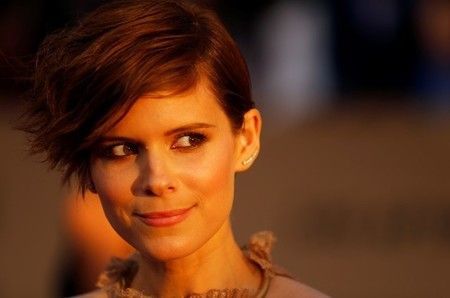Advertisement
Gender and emotion examined in artificial intelligence tale ‘Morgan’

By Piya Sinha-Roy
LOS ANGELES (Reuters) – The struggle to replicate human emotion in artificial intelligence is often explored in movies, but what happens when an artificial being is too emotional?
“Morgan,” out in theaters on Friday, is set in a near future reality where a group of scientists from a corporate AI company breed a synthetic baby.
Aged 5 but growing faster than a human child, Morgan, played by 20-year-old Anya Taylor-Joy, looks like female teenager and is a highly intelligent being with outbursts of deadly anger.
When Morgan is told by her human minder that she is no longer allowed outdoors and instead must stay in a caged underground room where she is constantly observed, she stabs her in the eye.
In comes the immaculately groomed corporate agent Lee Weathers (Kate Mara) to determine whether Morgan should be terminated.
“I had to hold back on most emotions because my character is rather unemotional and very even-keeled and calculated, very focused,” Mara said in an interview.
The film centers on its three lead female characters who include “Game of Thrones” actress Rose Leslie as Morgan’s closest friend, and Morgan’s struggle with gender identity. Half the scientists identify the being as “her,” while the other half including Lee Weathers coldly refer to Morgan as “it.”
Director Luke Scott said Taylor-Joy brought a childlike, vulnerable and “otherworldly” element to Morgan.
“I did consider male actors, but we talked about it and we thought it was better to find a great female lead,” he said.
“Morgan,” the first feature film for Scott, son of veteran filmmaker Ridley Scott, comes on the heels of Alex Garland’s 2015 independent sci-fi hit “Ex Machina,” in which Alicia Vikander played a female robot that outsmarts the humans who created her.
The film came out just as “Morgan” was about to start shooting, Scott said, and while he called Garland’s movie “quite niche,” he added that it made him rethink parts of “Morgan.”
“There’s a lot of philosophy in there,” Scott said.
“I thought that was terrific, but for me it was a good lesson in that initially I wanted to start moving in that direction. But watching “Ex Machina,” I thought: ‘Do you know what? I’m going to steer clear of this and perhaps be a little bit more entertaining and go for action.'”
(Reporting by Piya Sinha-Roy; Editing by Peter Cooney)











